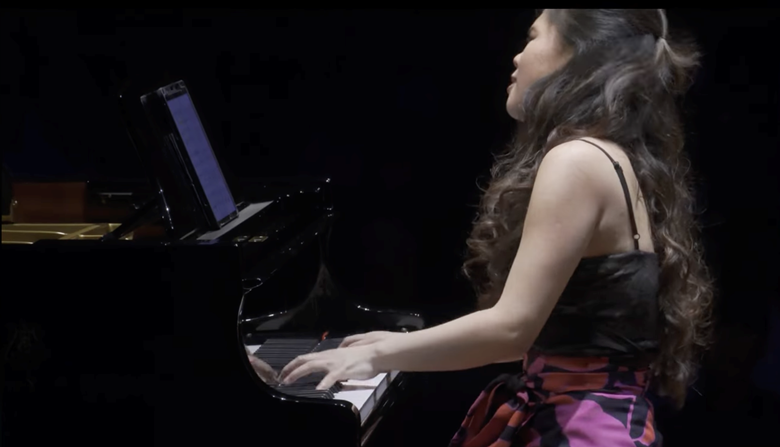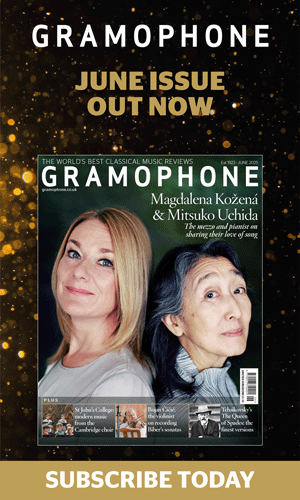Jed Distler's Cliburn Blog No 13: The Cliburn Commissions
Tuesday, June 3, 2025
On a rest day for the competition, Jed Distler looks back at some of the new music commissioned specifically for The Cliburn

One key component of The Cliburn is a newly commissioned work composed especially for the competition that all candidates are required to learn and perform for their Preliminary Round recitals. Up until recently the commissioned composers were all American. In 2024 pianostreet.com published a list of The Cliburn commissions, and I thought I could offer some random musings on the topic, as we gear up for the Finals.
Glancing through the list, I noticed works that have gained varying degrees of traction over the years, along with obscurities. I, for one, had never heard of the composer Willard Straight, let alone his Structure for Piano, which was the 1966 commission. However, Lee Hoiby’s virtually unknown yet witty and inventive Capriccio on Five Notes, Op 23 (1962), and Norman Dello Joio’s Capriccio on the Interval of a Second (1969) deserve serious revival.
Established American icons dominated commissions between 1973 and 1997, starting with Aaron Copland’s late-period creation Night Thoughts. Samuel Barber’s Ballade followed in 1977, while The Cliburn’s 1981’s candidates had to learn Leonard Bernstein’s Touches. John Corigliano’s 1985 Fantasia on an Ostinato has since become a contemporary repertoire staple, with William Bolcom’s Nine Bagatelles not far behind. This is not to disparage Morton Gould’s ingenuously idiomatic 1993 Ghost Waltzes, nor to give short shrift to William Schuman’s 1989 Chester Variations. That year’s tragically short-lived Gold Medalist Alexei Sultanov gave a stunning performance of Chester that was once available on the Teldec label.
Between 2001 and 2009 The Cliburn commissions stretched out to multiple composers, reverting back to a single composer policy in 2013 with Christopher Theofandis’s Birchino. From 2017 composer-pianists – Marc André-Hamelin, Stephen Hough and this year’s contributor Gabriela Montero – have been the focal point.
Oddly, prominent Minimalist composers haven’t figured in The Cliburn’s commissioning pool. Why not ask Philip Glass for a Preliminary Round piece, since his Études are played to death. Has John Adams been asked? After all, many Cliburn kids have played China Gates. In fact, Adams’s large-scale solo-piano masterpiece Phrygian Gates ought to become standard Cliburn virtuoso fare. I suppose Terry Riley was too much of an outsider to have been considered for commissioning, although his solo piano output is more varied in style and content that you’d suspect from the composer of the Minimalist manifesto In C.
And while we’re at it, did The Cliburn ever consider commissioning the late Frederic Rzewski, arguably the most significant and provocative composer-pianist of his generation? Certainly they missed out on commissioning the late David Del Tredici, whose hyper-romantic style and brilliant pianism would have been a Cliburn match made in heaven. But maybe a future contender will forgo programming the Barber Sonata in favor of Del Tredici’s tour-de-force Virtuoso Alice. Or instead of Beethoven’s Hammerklavier or Liszt’s Transcendental Études, we’ll get the first Cliburn performance of Rzewski’s The People United Will Never Be Defeated! We can live in hope.
Gramophone is a Media Partner of The Cliburn International Piano Competition

















